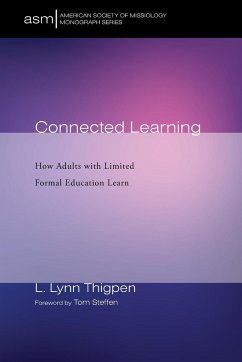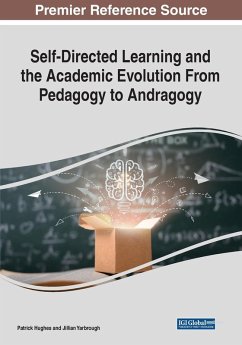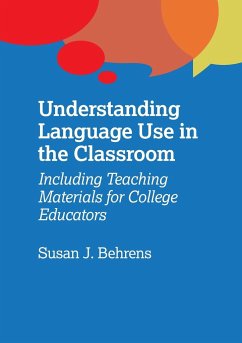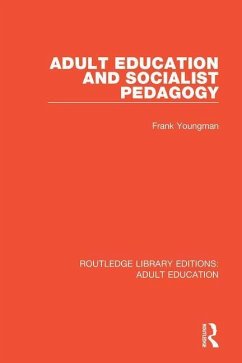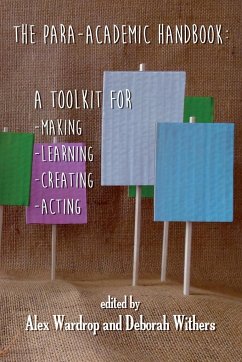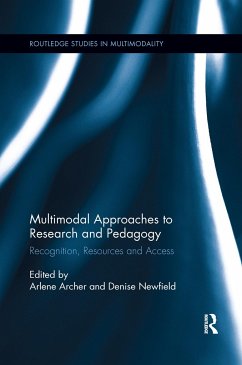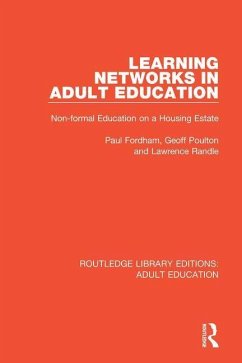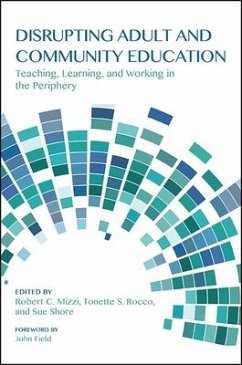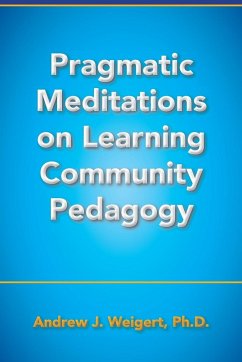
Pragmatic Meditations on Learning Community Pedagogy
Versandkostenfrei!
Versandfertig in 1-2 Wochen
20,99 €
inkl. MwSt.

PAYBACK Punkte
10 °P sammeln!
This groundbreaking book convincingly explains why a Learning Community Pedagogy (LCP) is a critical supplement to traditional teacher-student relationships. Based on a participatory democratic learning dynamic, LCP empowers both professor and student to discover themselves as present to one another, which generates freedom-an informing principle of the Learning Community. Through LCP, classroom participants are specifically liberated through dynamisms unleashed by the following four assumptions: (1) The world is in a state of profound crisis that requires critical thinking to inform decisions...
This groundbreaking book convincingly explains why a Learning Community Pedagogy (LCP) is a critical supplement to traditional teacher-student relationships. Based on a participatory democratic learning dynamic, LCP empowers both professor and student to discover themselves as present to one another, which generates freedom-an informing principle of the Learning Community. Through LCP, classroom participants are specifically liberated through dynamisms unleashed by the following four assumptions: (1) The world is in a state of profound crisis that requires critical thinking to inform decisions necessary for human survival in freedom and dignity; (2) Humans must place their primary faith in intellect as an evolutionary capacity that is potentially universal when liberated from the separate "pasts" of disparate groups; (3) Intellect is the primary path toward imagining and conceptualizing a future that all can see, collectively, as "Our Future"; (4) LCP focuses on empowering the young to describe their world to themselves and others, have faith in the intellectual possibilities of all humans, and reference their world to a sharable global future. A major thesis of the book, which is arranged in 32 concise "Meditations," is that LCP fosters security and trust that both infuse student participation and professorial authority and enable "ego" to, paradoxically, be independent of and engaged with "issue" and others at the same time. Throughout his discussion, Dr. Weigert illustrates the many ways that LCP reverses standard practices and assumptions of traditional pedagogy, such as that "grades" are useful, that professors must be "expert" in some specialty, and that answers should be given to questions rather than that answers should invite questions, thus making contingent what was certain. These features make the LCP classroom experience an adventure, since no one-not even the professor- knows what will emerge or even "happen" in any given class! Andrew J. Weigert is a Professor of Sociology at the University of Notre Dame. He has a B.A. and Licentiate in Philosophy and an M.A. in Economics from St. Louis University, a B.Th. from Woodstock College, and a Ph.D. in Sociology from the University of Minnesota. He joined the Faculty of the University of Notre Dame in 1968, and taught Sociology of Religion for one year at Yale Divinity School. He is author or co-author of over 80 articles and nine books in Sociology and Social Psychology, more recently concerned with identity and environment. His teaching was recognized with a Sheedy Award from the College of Arts and Letters, 2002 (sole recipient), and Kaneb Awards for Undergraduate Teaching in 1999, 2002, and 2005 (multiple recipients).



